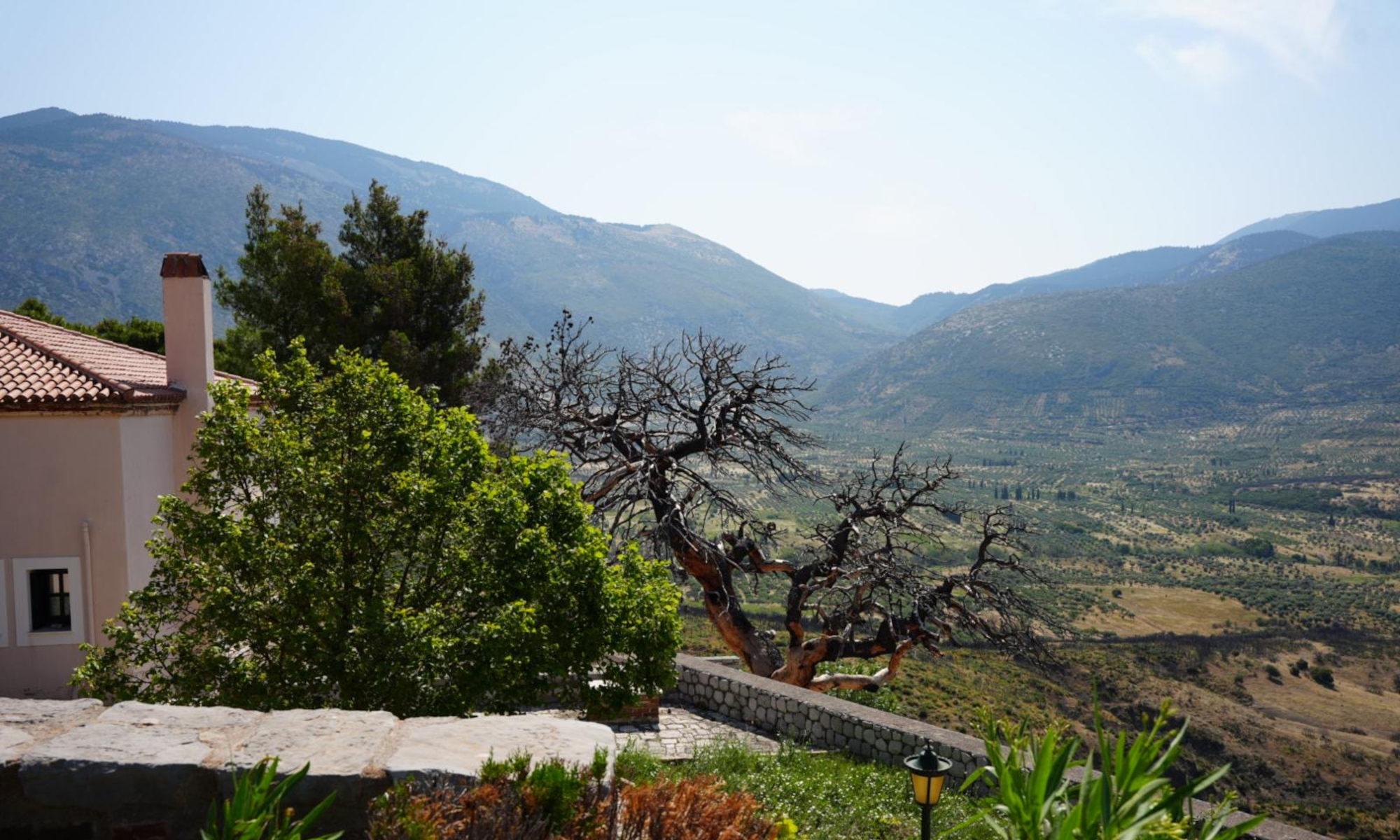By Mara DuBois
“This was one of my favorite beaches 20 years ago,” Nicolas Stephanou said as he stepped through a narrow gap in the stone and wood fence enclosing Faragas Beach Bar on the Cycladic island of Paros, Greece.
It was a scorching June day, and the only way to access this once-secluded public beach was to walk through the bar—a sprawling structure that didn’t exist a decade ago.
Stephanou, who has lived on Paros for 40 years, passed confidently by the hostesses and through the arrangement of restaurant tables, emerging onto the sunbaked sand. To his left, scattered towels lay haphazardly on the open beach. To his right, five neat rows and 11 columns of square umbrellas shaded matching sets of sunbeds.
This split view represents a small victory in a much larger battle. In 2023, Stephanou and other members of the Paros Citizens’ Movement successfully pushed for enforcement of a national law requiring businesses to leave at least 50% of every beach unoccupied for public use—a policy now visibly upheld at Faragas.
While abiding by this law, Faragas Beach Bar represents a growing threat facing the island: overconstruction fueled by booming tourism.
According to data from Greece’s statistics agency, Paros had 349 new building permits in 2024, more than any other island in the Cyclades for the fifth year in a row. Most of these permits support the construction of hotels, vacation apartments, or other businesses in the tourism industry like Faragas Beach Bar.
The Cyclades, already vulnerable to the effects of climate change, are negatively impacted by the environmental cost of this development.
“Water scarcity is a very big problem in the whole of the Cycladic Islands,” said Giorgos Lalios, a reporter who covers overtourism for the Greek daily Kathimerini.
Paros’s water supply is a concern of Stephanou. While the island is relatively well-off compared to its neighbors like Naxos, Stephanou warns that it’s approaching its limit.
“There’s an incredible waste of water,” he said, pointing to the proliferation of swimming pools and the use of non-native plants in hotel gardens which require excessive watering.
Paros Mayor Kostas Bizas agreed, identifying the effects of overconstruction as the island’s most pressing issue. However, his office has limited power to meaningfully address the issue. He has sent proposals to the central government to limit construction but is pessimistic about prospects for change.
“The government doesn’t seem very willing to listen to what we are saying,” Bizas said.
With local authority constrained, responsibility has fallen to groups like the Paros Citizens’ Movement to suppress the irreversible climate impacts of overdevelopment. Their 2023 beach movement drew over 300 local supporters and gained wide media attention. But their latest focus on limiting new construction has been more difficult.
“Everyone was with the Citizens’ Movement for the beaches,” Stephanou said. “This is a bit more controversial.”
Why? Because limiting construction threatens local livelihoods tied to the island’s large tourism industry. The movement now consists of a core group of about 20 activists.
Still, their efforts have yielded results.
The Citizens’ Movement has taken to court new building projects in an effort to mitigate the threats to Paros’s water supply. In two cases, the court decided to freeze construction on new developments.
“At least this is working,” Stephanou said.
However, Stephanou remains worried. Having experienced the detrimental effects of the tourism boom on Paros first-hand, he warned, “Eventually, tourism can kill tourism.”
The clock is ticking. If development continues unchecked, Bizas believes tourists will stop visiting the island due to crowds and traffic. When this happens, investors would likely abandon Paros as its quality-of-life declines under the weight of climate change.
“Locals will have to stay back with ghost villas,” he said.
